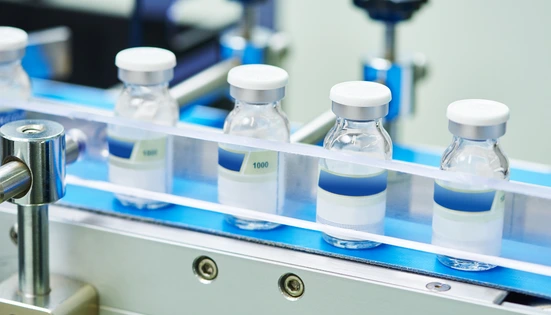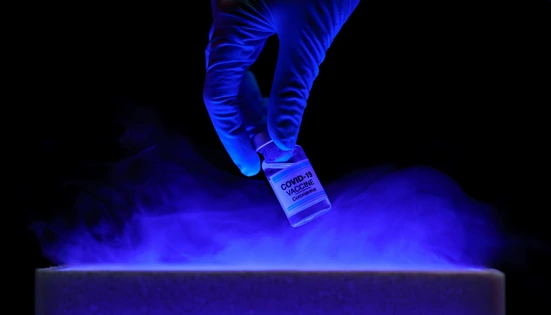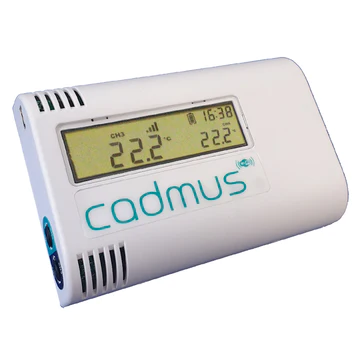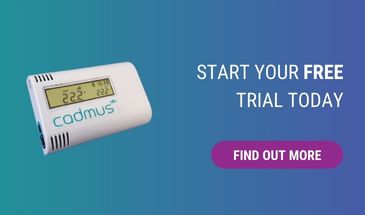How To Reduce Pharmaceutical Resource Loss
Medicines are an essential part of healthcare, with over £9bn of drugs dispensed each year in England. However, through improper storage of medication or the disposal of unwanted items, a staggering £300m is wasted annually. With the health system under increasing pressure, wastage on this scale should be avoided to reduce unnecessary expenditure and ensure a fairer distribution of medicine to those who are in greatest need.
Many medications need to be kept in cold storage to ensure they remain efficient. Everyday drugs, such as insulin, paediatric penicillin, steroidal eye drops, and vaccines, rely on precise cold storage conditions to remain usable. If exposed to warm temperatures, even during a temperature blip, they can lose their potency, become spoiled, and even cause harm to patients.
In this guide from Signatrol we explore the key principles involved in the cold storage of medication, and how data loggers can help ensure your pharmaceutical fridges remain at the optimum temperature.
The Importance Of The Cold Chain In Pharmaceuticals
For temperature-sensitive medications that require cold storage, swift and dependable supply chains are required at every stage of the product lifecycle to ensure that no temperature breaches occur that could render them ineffective or unsafe.
Consistency is key, backed up by effective monitoring and alert systems to ensure that the correct temperature range is maintained at every stage of the process. How can pharmaceutical retailers and businesses protect sensitive stock from degradation within the cold chain?
1) Stock management best practices
Stock management is an important way to reduce the loss of pharmaceutical stock. All medication has an expiry date which must not be exceeded, so the overordering of stock increases the likelihood that excess drugs will become unsafe to use if they aren’t matched by patient demand.
Overordering can also lead to pharmaceutical fridges becoming overstocked. This poses several potential problems:
➢ An urgent need for a single temperature-sensitive product, such as vaccines, could mean there is insufficient cold storage space. Existing stock may have to be disposed of to create space, particularly in a health emergency, such as the global pandemic.
➢ Regulating fridge temperatures becomes more challenging if they are overpacked with product. This may lead to medication being stored incorrectly, causing it to spoil prematurely. Effective stock management ensures that medications that require cold storage are ordered only in the required quantities, preventing refrigerators from becoming crowded and ensuring vital drugs are chilled at the correct temperature for safe use.

2) Transportation best practices
A functioning cold chain ensures that medication is stored at the correct temperature as it moves through the delivery system. Any interruptions to temperature control risk exposure to warmer temperatures, rendering products unusable before they even reach their destination.
Refrigerated vans or cool boxes are used to ensure medication remains at the correct temperature during its journey. To ensure the integrity of the cold chain, we recommend that:
❖ Temperatures should be monitored continuously at all stages of the cold chain.
❖ Particular attention is paid to the storage temperature at handover or interface points of the supply chain when deviations are more likely to occur.
❖ An unbroken record of temperature checks is produced for every stage of the journey and monitored to ensure any deviation is detected immediately.
❖ Alarm data loggers what are used to provide an instant alert should the temperature in cold storage rise to unacceptable levels, so that the problem can be quickly resolved to prevent damage to sensitive medication.
3) Fridge monitoring best practices
The need for refrigerated storage for temperature-sensitive drugs can create acute cold chain pressures. During the early stages of the Covid-19 vaccine rollout in the UK, for example, vaccine centres experienced considerable challenges in providing sufficient cold storage space for the new Pfizer vaccines, which needed consistent storage at around -70°C.
Like any electronic appliance, malfunctions in pharmaceutical-grade fridges cannot be ruled out. Equipment failures, power interruptions, and even poorly organised stock can cause the internal temperature to spike, putting sensitive medication at risk of damage. The accurate real time monitoring of cold storage conditions is, therefore, essential.
How do many healthcare practices and pharmacies monitor the temperature of their cold storage? Many use a paper temperature chart that is attached to the fridge so that the minimum and maximum temperatures can be recorded manually on a graph throughout the shift. Staff manually record the fridge temperature, either on a rota or at a set time. Some fridges feature an in-built alarm and temperature data logger so that staff don’t need to rely on handwritten measurements.
These procedures, however, pose potential problems:
✖ Paper charts, either attached to the fridge or stored elsewhere, can easily go missing, so vital data may be lost.
✖ Staff with busy schedules may forget to check the temperature at the correct time or, in a hurry, may misread the thermometer or plot the reading incorrectly. ✖ A fault with the cold storage unit that develops after a temperature reading has been taken will go unnoticed until the next check, which could be several hours.
✖ Fluctuating temperatures may go completely undetected if the internal temperature returns to its normal range when the next manual check is conducted.
✖ In-built thermometers and data loggers will not operate in a power cut or if the fridge fails.
It is important to remember that the fridge should be professionally checked at regular intervals – at least annually - to ensure that it is operating correctly. A built-in logger audit trail can assist in this process.

How Cadmus Protects Your Sensitive Pharmaceutical Stock
At Signatrol, we manufacture and supply a range of data logging solutions for healthcare and pharmaceutical organisations who need reliable and trustworthy ways to monitor storage temperature throughout the cold chain.
Our Cadmus data monitoring products comply with all relevant guidelines, including World Health Organisation (WHO) regulations for the storage and transportation of vaccines, from dispatch to administration, so that the temperature isn’t compromised at any stage of the journey.
➢ Standard pharmaceutical temperature monitoring in the range +2 - +8°C.
➢ Accurate monitoring of vaccines at ultra-low temperatures, between -70 and -80°C.
What is Cadmus?
Cadmus is a cost-effective, Wi-Fi enabled temperature data logging system suitable for fridges and freezers, which ensures that temperature-sensitive medication and vaccines are stored at the right temperature. Designed to meet the needs of pharmacies, pharmaceutical suppliers, and healthcare providers, Cadmus eradicates the problems of human error, incorrect readings, and disrupted monitoring schedules to ensure your staff are alerted the instant that the internal temperature of cold storage deviates from the norm, so that remedial action may be taken to save stock from spoilage.
Cadmus records temperature and humidity data and transfers it to the Cloud for secure storage via Wi-Fi. The device, which is battery powered so that it is unaffected by power cuts, is small enough to be quickly installed in fridges, freezers, or other cold storage devices. With over 12 months of battery life, your staff can be confident that Cadmus will offer continual monitoring of cold storage temperatures to within ±0.2°C, thereby complying with EN12830:2018.
Ratifi Cloud integration
Cadmus integrates with Ratifi our Cloud-based monitoring and data logging software solution. Stored in the Cloud, data collected from Cadmus can be accessed from anywhere and at any time, using a secure customer portal accessible through any device or web browser. The datum cannot be altered or manipulated after they are logged, so the stream of recordings represents a consistently accurate record of temperature within your cold storage facility.
The audit trail is a standard feature in the Ratifi software platform and is often a mandatory regulatory requirement. Audit trail shows in the record the name of persons who assessed the system with the date and time. The Audit trail assures the record integrity and security of the system.
Ratifi provides users with a wealth of information, including:
✔ Last upload date and time.
✔ Device alarm status.
✔ Process alarm status.
✔ Device health check information, including battery strength.
✔ Recalibration due date.

Features of Cadmus
Up to four channels to measure temperature, humidity, pulse count, or contact closure data.
➢ Data stored securely in the Ratifi Cloud server.
➢ A maximum of four alarms, per channel, which can be sent by email to any number of recipients to ensure a rapid response.
➢ Local audible and visual alarm signals.
➢ Additional inputs to record door openings or send an alert if a power failure occurs.
➢ Using the Internet of Things (IoT), automated reports can be generated on a daily, weekly, or monthly basis and sent to multiple email addresses.
➢ Optional customised reports can be generated on demand for audit purposes.
➢ WPA2-Enterprise enabled, on request for no extra cost. WPA-2 Enterprise is the gold standard for wireless network security, featuring over-the-air encryption to prevent unauthorised access.

Contact us to find out more
If you would like to find out more about how our Cadmus system could benefit your pharmaceuticals business at every stage of the cold chain and reduce resource loss, we can arrange a free trial of our equipment for a month. Please get in touch with Signatrol today on 01684 299399 or send us a message and one of our team will respond as soon as possible.


